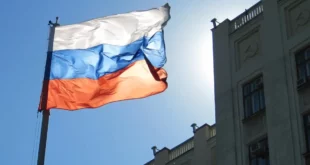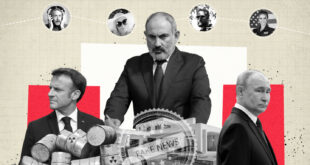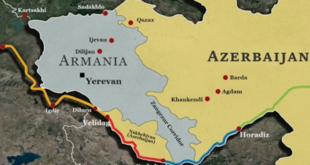Non-governmental organization Amnesty International in official letter to Russian President published on its website urges Vladimir Putin to review the implementation of Russia’s legislation governing civil society organizations, a commitment he made Tuesday at meetings with non-governmental organizations (NGOs) held in the context of the forthcoming summit of the Group of Eight most industrialized countries (G8) in St Petersburg.
Amnesty International believe that current legislation undermine the legitimate work of civil society in the Russia and fails to fully meet international standards.
 The President, while rejecting the call to amend the federal law, agreed to review its implementing regulations. He gave assurances that NGOs, foreign as well as Russian, would not be hindered from carrying out their legitimate activities.
 “This review should be undertaken as soon as possible, before the worst aspects of the legislation can be realized”, Secretary General of Amnesty International Irene Khan stressed.
 “The true test of the President’s words will be the creation of a genuinely enabling environment for NGOs in Russia itself, not just on the global stage at the G8,” she added
 The new law on civil society organizations was signed by President Putin on 10 January 2006 and entered into force three months later. Although described by the President as aiming to bring order rather than restrictions into the activities of NGOs, Amnesty International believes that the law instead undermines their work by giving the authorities increased powers of scrutiny of the funding and activities of Russian and foreign NGOs. “The experience to date has been that the law is unduly burdensome, diverting resources from substantive programs, while using a regulatory framework that can be arbitrarily applied, has key provisions which lack a precise legal definition, and sanctions that are disproportionate”, the letter reads.
 At Russia’s request the Council of Europe reviewed the first draft of the legislation and made a number of recommendations, some of which were incorporated into the final version through amendments adopted by Russian Parliament. However, the Council of Europe remains concerned about the “excessive powers of supervision” the law provides for, and about the possibly discriminatory effect of amendments which impose even stricter control of foreign NGOs.
 In the meetings President Putin restated his absolute opposition to foreign funding for those involved in “political activity” in the Russian Federation. However, the law gives no clear legal definition of political activity. Amnesty International remains concerned that such a vague framing of this issue leaves the door open for NGOs critical of the government’s human rights policies to fall foul of the law’s restrictions and implementation.
 Russia has a leading role on the global stage at present as chair of the G8 and of the Committee of Ministers of the Council of Europe, as well as a permanent member of the UN Security Council and an elected member of the new UN Human Rights Council. As such Amnesty International is calling on President Putin to demonstrate leadership by following through on the time he made yesterday to listen to the messages of civil society – domestic and international.
 “We appreciate the personal effort that President Putin made in meeting and engaging actively in discussions during formal and informal meetings with NGOs, both Russian and international,” said Irene Khan. “However, this effort needs to be matched now by concrete action to enable NGOs in the Russian Federation to operate without undue burden or restriction. Otherwise his overture will have been simply a public relations exercise.”
 Eurasia Press & News
Eurasia Press & News



